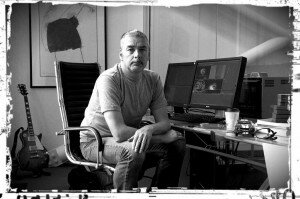
OK. I know it’s not big or clever to take pot-shots at an easy target – and this is frankly like shooting fish in a barrel – but we really DO need to talk about hospital food.
I mean come on really… I know bad hospital food is a tired old culinary cliche, granted – right up there with the British Rail sandwich and school dinners. But Does it really have to be this bad?
I don’t think I’m being precious or melodramatic here. I am English after all. We practically invented bad food. Tripe & Onions. Jellied Eals. Oxtail Soup. Mr.Kipling’s Cakes. All our own work. It’s one of the cornerstones of British culture. Like warm beer, and bad teeth.
But this is a whole new level of bad. It’s incomprehensibly, unfeasibly, almost comically bad. So bad it’s tempting to think that someone downstairs is having a bit of a laugh. “Go on Edna, send this lot up, let’s see if any of the poor buggers actually eats it… snigger, snigger” I keep expecting the overweight and sullen porters who deliver the “food” on large wheeled trolleys to fall about laughing when I put the fork into my mouth. But they don’t, they just drop the plastic tray on my bedside table and hurry out with a shamed look on their face, like they’ve just farted.
The meals arrive with depressing punctuality – breakfast at 8.30am, lunch at 12.30pm and dinner ar 5.30pm – and a strange and pervasive smell arrives along with it. It’s not a cooking smell, or a food smell of any kind really. Most of the time smell is a pretty useful indicator of whats going to be under the silver (or in this case plastic) plate cover – fish, a curry, some roast beef perhaps, they all have their own distinctive and comely scent. It’s one of the great pleasures of eating. But not in the strange parallel universe of hospital catering. The odor is always exactly the same. It took me a couple of days to pin it down, but I’ve got it now. It’s the smell of a wet, used towel that’s been forgotten about in your sports bag for about a week.
This is how it works. On arriving on my ward, the first couple of meals arrive magically and unbidden. A few hours into my stay a large and officious lady in a dog-tooth skirt slightly too small for her arrives and hands out printed A4 menu planners. (Everyone associated with hospital food is conspicuously overweight. I can only assume they must bring their own meals to work.) The dour dinner lady stands and taps one of her flat feet impatiently while I rummage around for a pen and make my selections for the next days meals. It doesn’t pay to rush the paperwork as I found out the next morning to my cost. Every delicacy on the sheet has it’s own tick box. Don’t tick the box, go without. The completed menu sheets are obviously parsed by sub-mechanical intelligence. For breakfast I ticked the box for cornflakes, but overlooked the box for milk. I suppose I thought it was implicit. Like bread and butter, which I also managed to muck up. The following day I woke up to a plastic tub of dry cornflakes, and two slices of barren white bread in a paper bag. I ate the paper bag and left the rest.
The comedians in the kitchens also amuse themselves by coming up with florid and gushing descriptions of their daily offerings, designed to whip the hungry diner into a frenzy of salivating anticipation, only to be rudely crushed when the blue plastic plate cover is whipped of with a waiter’s flourish. “Ta-Dahh!”
I’ll give you an example. Sunday’s offering was:
- Vegetarian Fritatta
- Chunky Kumara Mash
- Steamed Oriental Vegetable Medley
Wow! That actually sound rather good don’t you think? Washed down with a nice crisp Pinot Gris, or maybe a cheeky little Sauvignon Blanc. Very agreeable. Well before you all jam the hospital switchboard trying to make dinner reservations, here’s what arrived…

Now bear in mind that I have quite a good camera, so the picture is, if anything, rather flattering. Actually, in terms of presentation, they had really rather excelled themselves on this occasion. Most of it was on the plate, and some of it wasn’t stuck to the plastic, so that it had to be chiseled off with a knife, which had been the case with the previous evenings alleged “Chicken in Gravy.” No, what was truly remarkable about this dish was the complete and utter absence of flavor of any kind. You wouldn’t have thought it would be humanly possible to create an entire plate of food which does not contain one single atom of gustation. According to my high-school biology teacher Mr. Brittain, there are six distinct flavors the human tongue can differentiate. Sweet, Sour, Salty, Bitter, Pungent, and Astringent. Ingeniously, the hospital kitchen has managed to eliminate all six entirely from the cooking process. As I consumed the food hungrily there was no sensation of eating anything at all, other than a uniform warm weight in my mouth, and a vague aroma of wet towels. In spite of me diligently ticking the boxes for salt & pepper, there was none on my tray. Eventually three of us shared one small paper sachet of salt that had slipped onto someones tray, presumably by accident.
There was some discussion as to whether we should recklessly squander the entire precious serving on one meal, or save some for the following day. I felt like I was in an episode of Colditz.
Alright. In the grand scheme of things it’s not that big a deal. I was only there for a few days, and it is a hospital not a hotel. In every other respect, the care I received was first class. But I’m really not that sick yet. Some of the people I met on Ward 64 were on their last legs. In fact for some of them, their last legs were already long gone. Hospital days are much longer than normal happy, healthy days. These peoples lives might be drawing to a close, but their days seem to telescope out into the far distance. Meals are a way of marking time and breaking the monotony. Would it really be so hard to give them something to look forward to?





 I thought it would be a good idea to take a bit of a break from all the blood and guts, apparently some of you are starting to get a bit squeamish.Today instead, I’m going to tell you why I’m not an astronaut.
I thought it would be a good idea to take a bit of a break from all the blood and guts, apparently some of you are starting to get a bit squeamish.Today instead, I’m going to tell you why I’m not an astronaut. At the very pinnacle of this hastily constructed pyramid of political bravura and technical arrogance, stood the astronaut. These days, where space-travel has become prosaic and mundane, it’s hard to appreciate the reverence in which this élite group of two dozen carefully picked men were held. They were pioneers and explorers. They were modern gladiators – cold-war warriors. Hell, they were practically gods. Women, and impressionable young boys like myself prostrated ourselves at their silver-booted feet.
At the very pinnacle of this hastily constructed pyramid of political bravura and technical arrogance, stood the astronaut. These days, where space-travel has become prosaic and mundane, it’s hard to appreciate the reverence in which this élite group of two dozen carefully picked men were held. They were pioneers and explorers. They were modern gladiators – cold-war warriors. Hell, they were practically gods. Women, and impressionable young boys like myself prostrated ourselves at their silver-booted feet.

 The Phlebotomist* is an impossibly small, stern looking Chinese lady with disproportionately large feet. She could easily be hobbit. I can’t see if she has hairy toes under her over-sized Reeboks. She shooes me into a cramped ante-room and up onto a raised chair with wide tear-drop shaped armrests upholstered in sticky, green vinyl leatherette.
The Phlebotomist* is an impossibly small, stern looking Chinese lady with disproportionately large feet. She could easily be hobbit. I can’t see if she has hairy toes under her over-sized Reeboks. She shooes me into a cramped ante-room and up onto a raised chair with wide tear-drop shaped armrests upholstered in sticky, green vinyl leatherette.





 And here’s another thing. Getting out into the macro scale of the South Island wilderness, is a highly effective way of putting our puny little human trials and tribulations into sobering context. Out here, things are operating on geological time. Our guide explains that the seemingly immutable mountains towering over us are moving and growing by a few centimeters each year, only to be eroded away again by the relentless action of ice and wind and rain. The glaciers advance and recede at a rate of a few tens of unimportant human lifetimes per kilometer. The entire landscape is breathing in slow-motion.
And here’s another thing. Getting out into the macro scale of the South Island wilderness, is a highly effective way of putting our puny little human trials and tribulations into sobering context. Out here, things are operating on geological time. Our guide explains that the seemingly immutable mountains towering over us are moving and growing by a few centimeters each year, only to be eroded away again by the relentless action of ice and wind and rain. The glaciers advance and recede at a rate of a few tens of unimportant human lifetimes per kilometer. The entire landscape is breathing in slow-motion.

 It’s strange, this cancer business.
It’s strange, this cancer business. And another thing. After a few long, dark-nights-of-the-soul after my diagnosis, I’m now sleeping like a baby. Eight or ten hours of dreamless slumber every night – a novel and welcome experience, having been an intermittent insomniac for years. Consequently the dark bags under my eyes have almost disappeared, my nervous eczema has cleared up, and it could be my imagination but I even fancy a few wrinkles might have gone.
And another thing. After a few long, dark-nights-of-the-soul after my diagnosis, I’m now sleeping like a baby. Eight or ten hours of dreamless slumber every night – a novel and welcome experience, having been an intermittent insomniac for years. Consequently the dark bags under my eyes have almost disappeared, my nervous eczema has cleared up, and it could be my imagination but I even fancy a few wrinkles might have gone.



